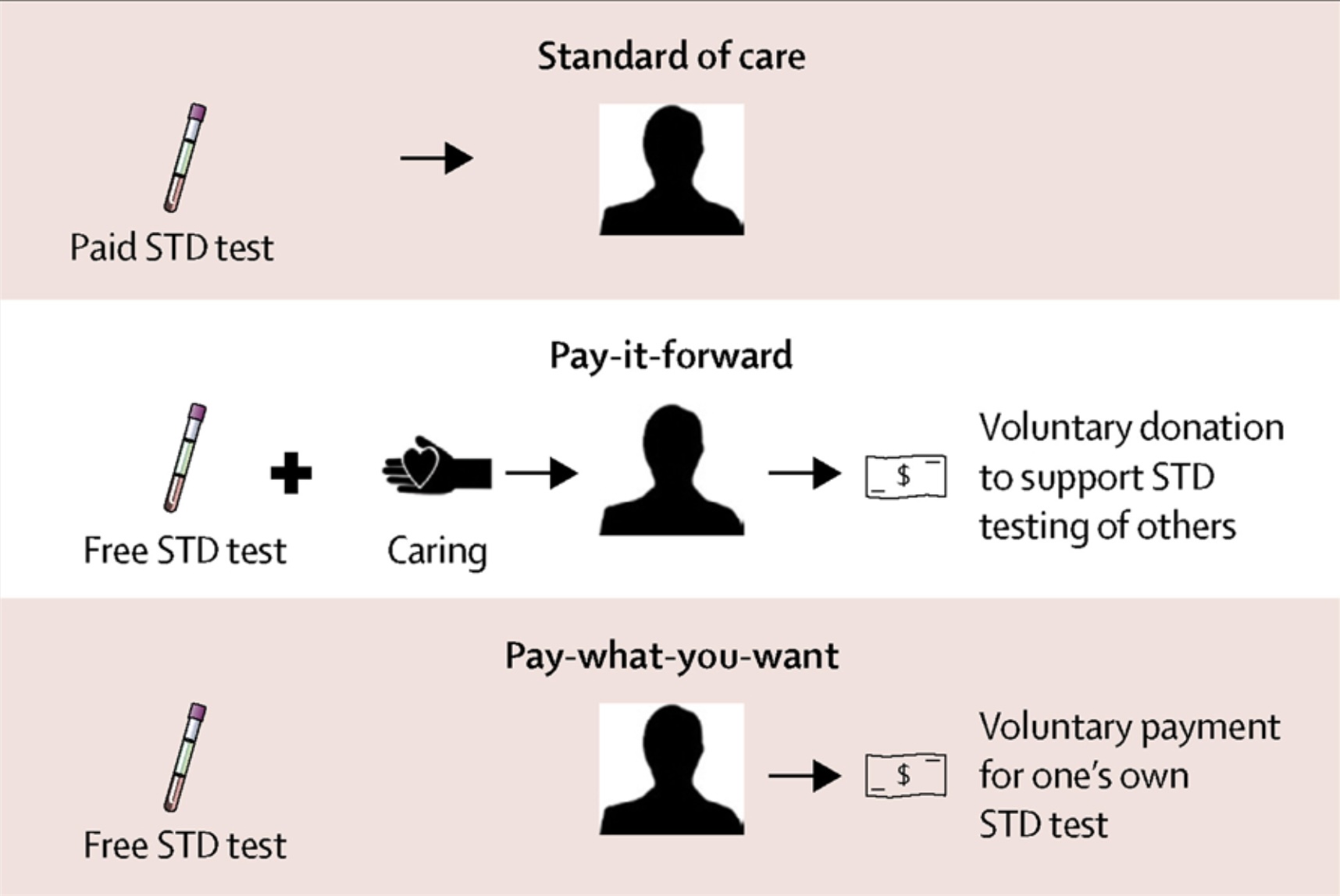
Pay-it-forward gonorrhea and chlamydia testing among men who have sex with men in China: a study protocol for a three-arm cluster randomized controlled trial
Abstract
Background: Gonorrhea and chlamydia testing rates are poor among Chinese men who have sex with men (MSM). A quasi-experimental study suggested that a pay-it-forward strategy increased dual gonorrhea/chlamydia testing among MSM. Pay-it-forward offers an individual a gift (e.g., a free test) and then asks the same person if they would like to give a gift to another person. This article reports the protocol of a randomized controlled trial to evaluate dual gonorrhea/chlamydia test uptake and other outcomes among MSM in three arms - a pay-it-forward arm, a pay-what-you-want arm, and a standard of care arm.
Methods: Three hundred MSM will be recruited at three HIV testing sites in Guangzhou and Beijing. Testing sites include two hospital-based MSM sexually transmitted diseases clinics and one MSM community-based organization. Eligible participants will be born biologically male, aged 16 years or older, reporting previous anal sex with another man, having never participated in the pay-it-forward program, without previous gonorrhea and chlamydia testing in the past 12 months, and residing in China. Following a cluster randomized design, every cluster of ten participants will be randomly allocated into one of three arms: (1) a pay-it-forward arm in which men are offered free gonorrhea and chlamydia testing and then asked whether they would like to donate ("pay it forward") toward testing for future testers; (2) a pay-what-you-want arm in which men are offered free testing and told to decide how much to pay after receiving the test; (3) a standard of care arm in which men can pay the full price for dual gonorrhoea and chlamydia testing. The primary outcome is dual gonorrhoea/chlamydia testing as verified by administrative records. Secondary outcomes include incremental cost per test, incremental cost per diagnosis, community connectedness, and social cohesion. Primary outcome will be calculated for each arm using intention-to-treat and compared using one-sided 95% confidence intervals with a margin of 20% increase defined as superiority.
Discussion: This study will examine the pay-it-forward strategy in comparison to the standard of care in improving test uptake for gonorrhea and chlamydia. We will leverage the cluster randomized controlled trial to provide scientific evidence on the potential effect of pay-it-forward. Findings from this study will shed light on novel intervention methods for increasing preventive health service utilization and innovate ways to finance it among communities.
Trial registration: ClinicalTrials.gov, NCT03741725 . Registered on 12 November 2018.
Keywords: China; Gonorrhoea and chlamydia testing; Integrated HIV testing; Men who have sex with men; Pay-it-forward; Randomized controlled trial.
Citation:
Zhang TP, Yang F, Tang W, Alexander M, Forastiere L, Kumar N, Li K, Zou F, Yang L, Mi G, Wang Y, Huang W, Lee A, Zhu W, Vickerman P, Wu D, Yang B, Christakis NA, Tucker JD. Pay-it-forward gonorrhea and chlamydia testing among men who have sex with men in China: a study protocol for a three-arm cluster randomized controlled trial. Infect Dis Poverty. 2019 Aug 16;8(1):76. doi: 10.1186/s40249-019-0581-1. PMID: 31426869; PMCID: PMC6700988.